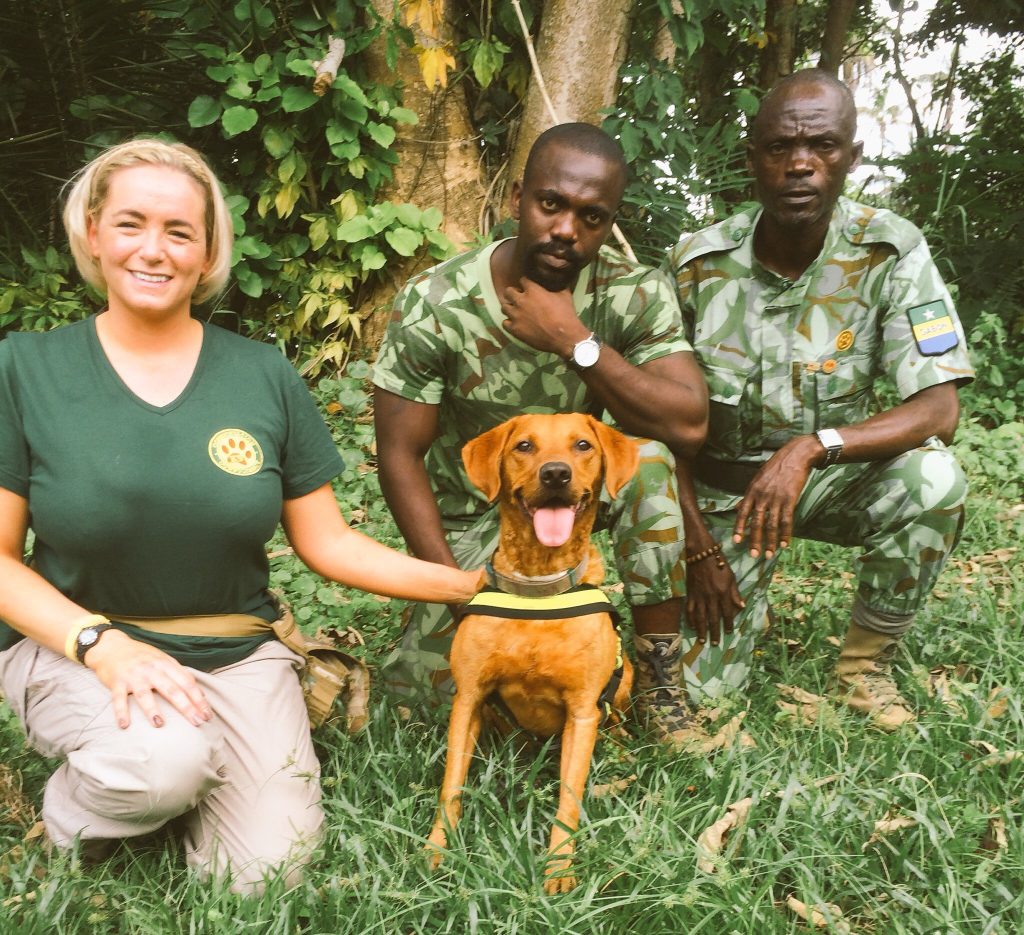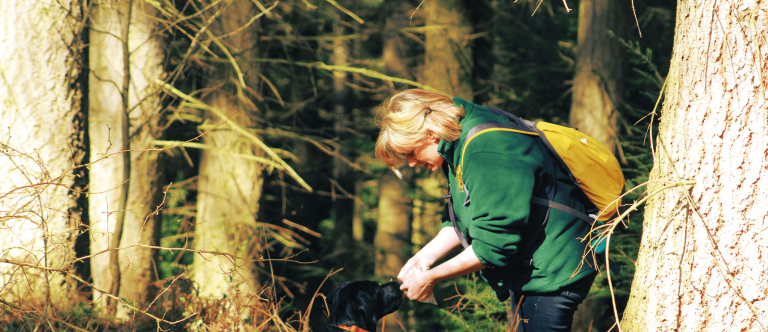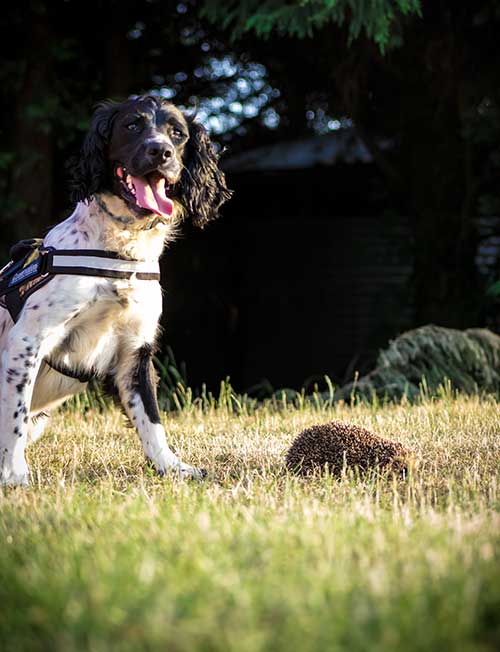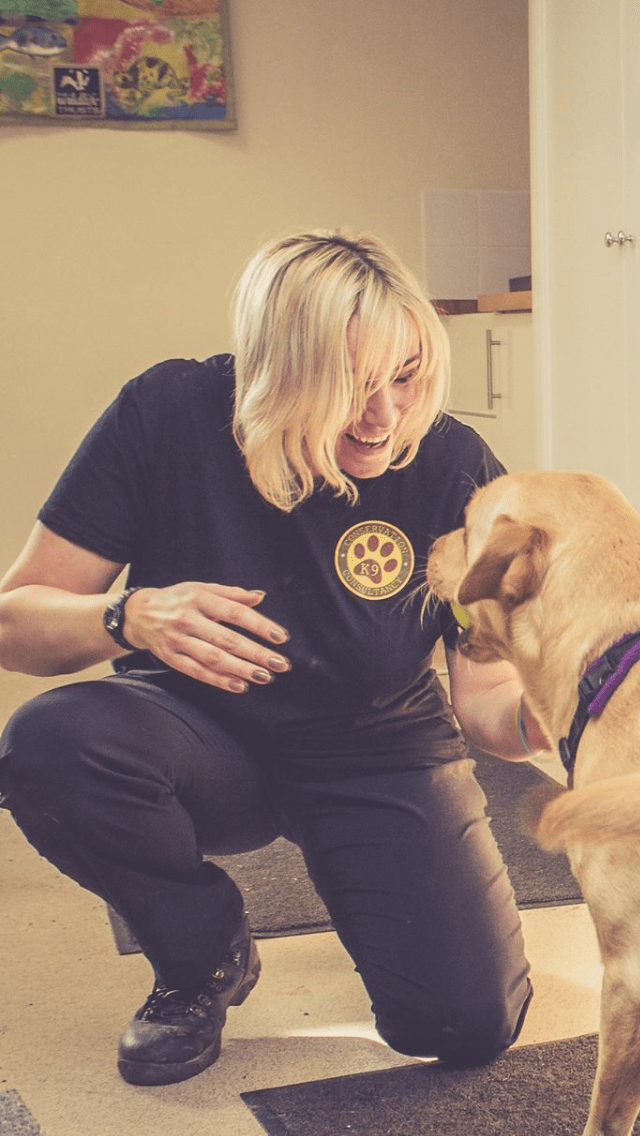Our Story
“A dog’s sense of smell is at least 100,000 times more sensitive than ours. As a result, scat detection dogs have been able to demonstrate greater success at locating scats than human search teams using visual detection. Research suggests that dogs are at least 96 per cent effective.”
Louise Wilson, founder of Conservation K9 Consultancy.
Interviewed by The Independent, February 2011
I’ve been working with dogs my entire adult life. I know from experience that dogs can detect any substance, in any environment, regardless of distractions, given the right training.For 16 years, I’ve been giving them the right training.
In the beginning, I trained sniffer dogs to detect the usual targets – drugs and cigarettes. As a volunteer, then a staff member, then director and head of training at a leading detection dog training company, I trained detection dogs for the police, the armed forces, UK Border Force and HMRC. We provided dogs to detect explosives, firearms, drugs, cash, tobacco, live bodies (stowaways) and even human remains – saving money and saving lives.
Despite my experience working with these wonderful animals, I found it astonishing, mind-boggling really, that dogs were able to detect even the smallest trace of odour no matter how concealed. I believed that I could train our dogs to find anything. I was desperate to put that theory to the test.
After seven years in the business, I took a call from a lady in South Africa. She needed help with training her dogs in cheetah scat (poo) detection for the Endangered Wildlife Trust. This was just the opportunity I’d been looking for – tracking down big cats in South Africa.
That was the start of my conservation story.


ON THE SCENT OF WILDLIFE DETECTION
In South Africa, I met a wonderful woman who is now my friend, Rox Brummer from Green Dogs Conservation. Rox and I worked together to develop a feasibility study assessing the effectiveness of using dogs to detect cheetah scat in the hot and dusty South African terrain. By analysing the scat samples, conservationists would be able to track and document the cheetahs without the need for darting any of these shy and vulnerable animals.
Dogs, I soon realised, were ideally suited to locating samples over vast landscapes.
Whereas human search teams tend to look in the “usual” areas, a dog is unbiased. It is led by its nose not by sight. Literally working like a dog, a trained detection animal will work far quicker than a human, covering a larger area in less time. These qualities make dog-led searches very efficient, ethical, non-biased and cost effective – an important consideration in conservation these days.
Excited by this experience, I started to train dogs exclusively for anti-poaching and wildlife protection projects. The company I founded was the first of its kind in the UK to offer specialist dog detection specifically for the conservation and wildlife sector.
“What you do makes a difference and you have to decide
what kind of difference you want to make”
– Dr Jane Goodall
DELIVERING QUALITY SERVICES TO THE CONSERVATION SECTOR
When I first started working in conservation, I did it with next to no business acumen or community supporting me. But I had total belief in my canine colleagues. Their instincts, and my training, led to some stunning successes. In fact, we quite literally set the bar for training dogs in the field of wildlife detection work.
When we began, no one had ever trained dogs to sniff out bat carcasses, for example, or pine marten scat in the UK as far as we were aware – some of our early wins. Nobody ever dreamed we could do what we are doing. I like to think that we opened people’s eyes to the amazing applications a dog’s nose can be used for.
You can read about some of our ground breaking projects here.
I travelled the world with my training techniques and worked in some amazing places – South Africa, Gabon, Tanzania, Mozambique, Montana – giving me a wealth of knowledge I am delighted to share. And I am thrilled to have won four business awards for my achievements – proof that my idea had the potential I always thought it would and a real incentive to accomplish more.


Featured Works
Conservation K9 Consultancy is the first standalone freelance consultancy in the UK to train dogs specifically for wildlife detection, logistical support, mentoring and training. Louise has been featured in numerous articles, research papers and television episodes, below are just some of her highlights.
Research Papers
Media & Television
- Hedgehog Street
- People's Trust for Endangered Species (Henry Sniffs Out Hedgehogs)
- Gloucestershire Live
- Dogs Today Magazine
- Leader Live (Henry at Glyndwr University)
- Daily Post
- Gizmodo
- Dog Desk Radio
- People's Trust for Endangered Species (Hettie Sniffs out Water Voles)
- Conservation Dogs Collective
- Leader Live (MP Praises Conservation K9 Consultancy)
- Inside Ecology
- Pup Talk Podcast
- The Conservation K9 Podcast
- The One Show
- Nick Benger Podcast
- Luna Country File
- Supreme Master TV
